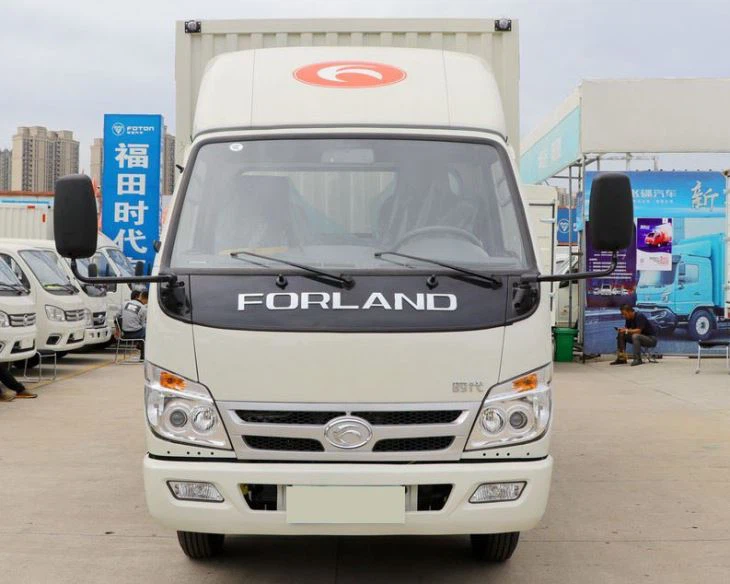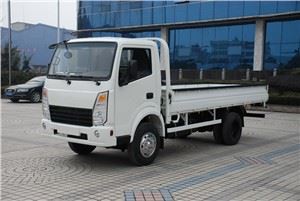Front Load Dumpster for Sale: Your Comprehensive Buying Guide

When it comes to waste management, choosing the right dumpster is essential for businesses and individuals alike. If you’re looking for an efficient and reliable waste disposal solution, a front load dumpster might be your best choice. In this article, we will explore everything you need to know about front load dumpsters, including where to find them for sale, their features, benefits, and much more.
What is a Front Load Dumpster?
A front load dumpster is a type of waste container that is typically used for commercial waste disposal. Unlike rear load dumpsters that have their openings at the back, front load dumpsters have their opening at the front, making them more accessible for easy loading. They often come in various sizes to accommodate different needs, making them a popular choice for businesses, construction sites, and large residential projects.
Features of Front Load Dumpsters
- Durability: Made from heavy-duty materials, front load dumpsters can withstand various environmental conditions.
- Accessibility: The front-loading design allows for easier access, especially in tight spaces.
- Stackable: Many front load dumpsters are stackable, which can save space in storage areas.
- Customizable Sizes: They come in multiple sizes ranging from 2 to 8 yards, suitable for different types of waste disposal tasks.
Benefits of Using Front Load Dumpsters
1. Efficient Waste Management
Front load dumpsters enable quick and efficient waste removal, which is crucial for businesses that generate a large volume of waste. Their design allows for easy loading by commercial trucks, reducing the time required for collection.
2. Space-Saving Design
With a compact footprint, front load dumpsters fit neatly in smaller areas, making them ideal for urban settings where space is at a premium.
3. Cost-Effective Solutions
Using front load dumpsters can be a cost-efficient choice for businesses as they allow for a larger amount of waste to be disposed of at once, reducing the number of pickups needed.
4. Environmentally Friendly
Front load dumpsters can be used in recycling programs, promoting sustainable waste disposal practices. Many municipalities encourage recycling and composting, which can further reduce waste in landfills.

5. Versatile Use Cases
- Construction Sites: Excellent for disposing of debris and construction waste.
- Restaurants: Great for managing food waste and packaging materials.
- Retail Stores: Ideal for handling excess inventory and packaging waste.
Where to Find Front Load Dumpsters for Sale
1. Local Waste Management Companies
Many local waste management companies sell or lease front load dumpsters. They provide detailed information about their products, ensuring you choose the right size and type for your needs.
2. Online Marketplaces
Websites like Craigslist, eBay, or Facebook Marketplace often have listings for used front load dumpsters for sale. Purchasing second-hand can be budget-friendly but ensure that you check the condition before buying.
3. Manufacturers and Suppliers
Directly purchasing from manufacturers or suppliers can provide access to new and more customizable options. Prominent manufacturers usually have catalogs online, making it easier to compare different models.
4. Dumpster Rental Companies

Many rental companies offer the option to buy or lease dumpsters. This is a practical choice if you only require a dumpster temporarily but may also open opportunities for purchase later.
Factors to Consider When Buying a Front Load Dumpster
1. Size
Determine the right size based on your waste generation needs. Consider factors such as the volume of waste produced and the frequency of pickups to choose an appropriate size.
2. Material
The material of the dumpster affects its durability. Most front load dumpsters are made of steel or high-grade plastic; steel is usually more durable but heavier.
3. Price
Compare prices from different sellers, and consider both new and used options. Ensure you factor in delivery and disposal fees.
4. Local Regulations
Check with local waste management regulations regarding dumpster ownership, placement, and potential permits. Some areas have specific guidelines you must follow.
5. Maintenance and Support
Consider the maintenance required for the dumpster and the support options available from the seller in case of issues or repairs.
Practical Tips for Using Front Load Dumpsters
1. Proper Loading Techniques
To maximize space and efficiency, load heavier items at the bottom and lighter ones on top. Ensure that the weight is evenly distributed to prevent tipping during transit.
2. Keep the Dumpster Clean
Periodically clean your dumpster to prevent odors and pest attraction. You can use a mixture of water and vinegar for a natural cleaning solution.
3. Schedule Regular Pickups

Establish a consistent pickup schedule with your waste management provider to prevent overflow and maintain cleanliness.
4. Educate Employees
If you’re using a front load dumpster in a business setting, educate your staff on proper disposal practices to avoid contamination and waste management issues.
Cost Analysis of Front Load Dumpsters
The cost of a front load dumpster can vary widely based on several factors. Here’s a breakdown of average costs you may encounter:
| Size (Cubic Yards) | Average Purchase Price | Average Rental Price (Monthly) |
|---|---|---|
| 2 | $500 – $800 | $150 – $250 |
| 4 | $600 – $1,000 | $200 – $300 |
| 6 | $700 – $1,200 | $250 – $350 |
| 8 | $800 – $1,500 | $300 – $400 |
Front Load Dumpsters vs. Other Types of Dumpsters
1. Front Load Dumpsters vs. Rear Load Dumpsters
Front load dumpsters are designed for easy loading from the front, while rear load dumpsters are accessed from the back. Front load dumpsters are often specified for commercial use, while rear load models are commonly used for residential purposes.
2. Front Load Dumpsters vs. Roll-Off Dumpsters
Roll-off dumpsters can be rented for short-term projects and are ideal for construction waste. In contrast, front load dumpsters are designed for ongoing waste disposal needs, making them a better fit for businesses.
FAQ Section
1. How much weight can a front load dumpster hold?
The weight capacity of a front load dumpster varies based on its size, but generally ranges from 1,000 to 4,000 pounds. Always consult your supplier for specific weight limits.
2. Can I use a front load dumpster for residential purposes?
Yes, front load dumpsters can be used for residential waste. However, they are more commonly used for commercial purposes due to their larger sizes.
3. What items can and cannot be disposed of in a front load dumpster?
Most solid waste can be disposed of in front load dumpsters. However, hazardous materials, electronics, and certain recyclable items may require special handling and should not be placed inside.
4. Do I need a permit for placing a front load dumpster on the street?
In many municipalities, a permit is required for placing dumpsters on the street or public property. Always check with your local regulations to ensure compliance.
5. Can front load dumpsters be delivered to construction sites?
Yes, front load dumpsters can be delivered to construction sites. It’s essential to discuss the site access with the rental company to ensure proper delivery.
6. How often should I schedule pickups for my front load dumpster?
The frequency of pickups depends on your waste generation. Regular pickups ensure cleanliness and efficiency, so it’s advisable to start with weekly or bi-weekly pickups and adjust based on your needs.
